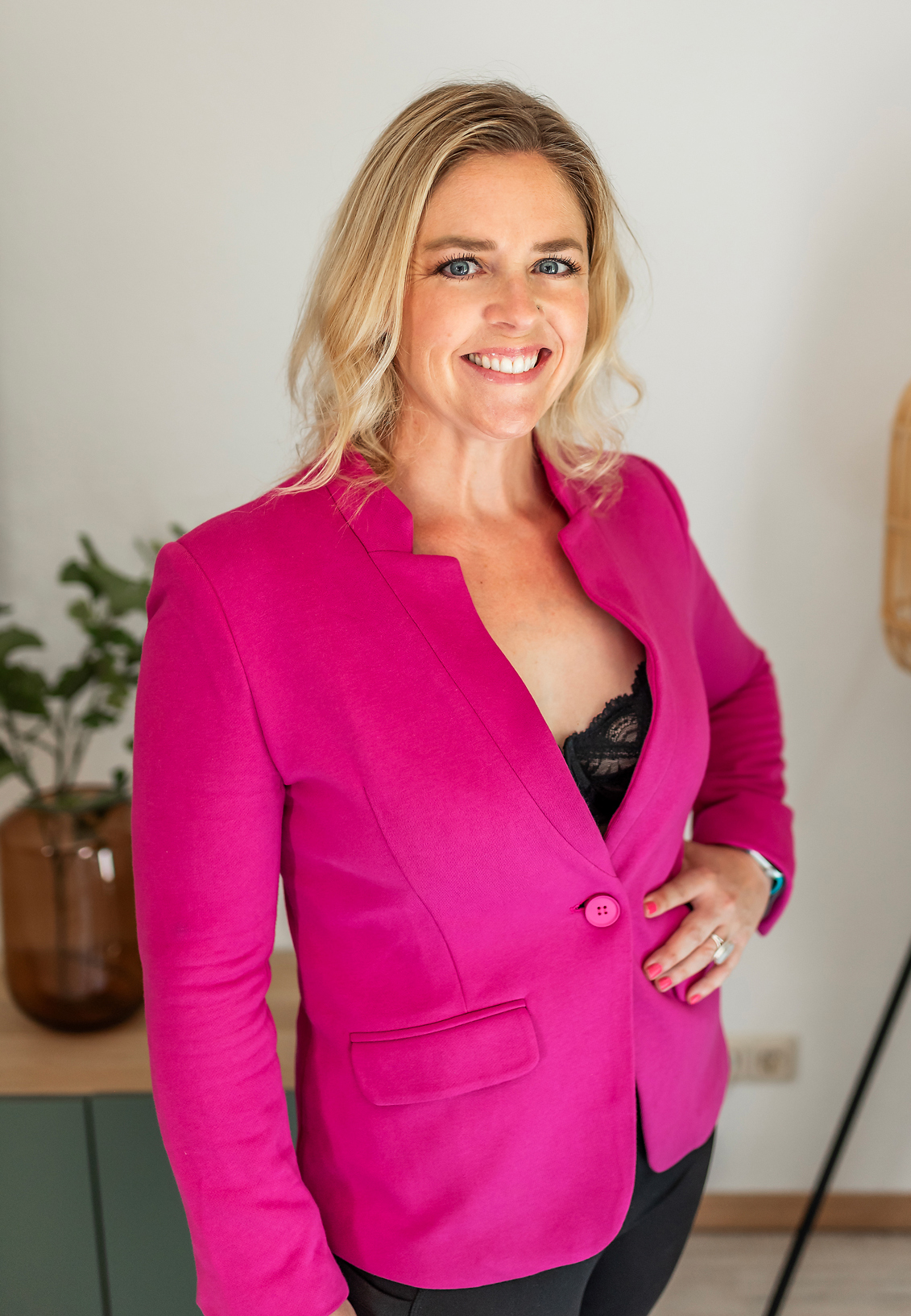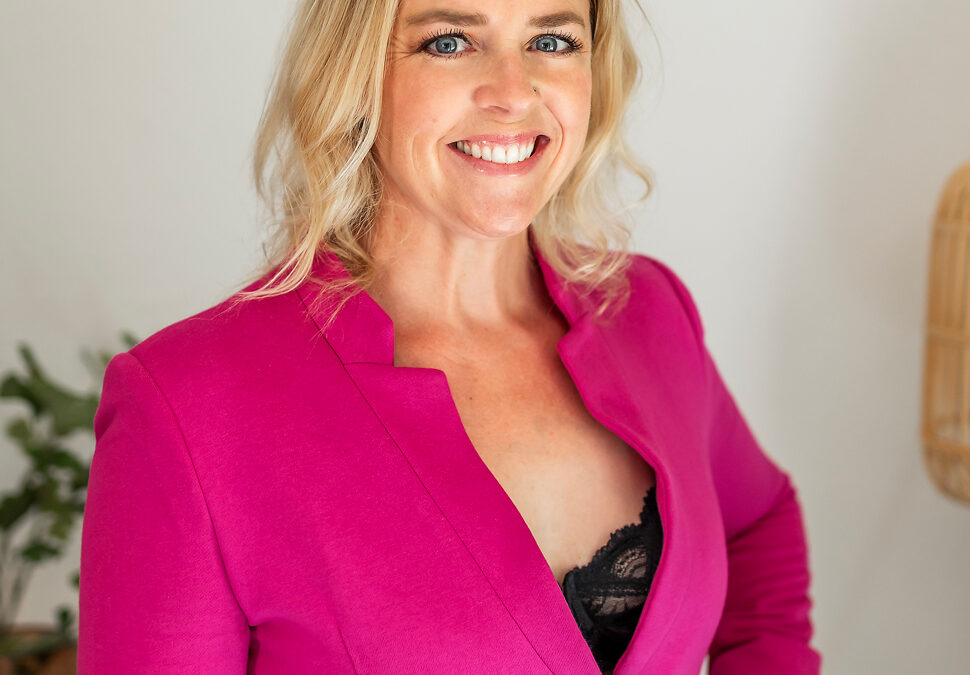‘I was raised in the Evangelical church – now I sleep with men outside my marriage and my husband knows’
Words by Courtney Boyer

If someone told teenage me that I would grow up to be a sex therapist in an open marriage, I would never have believed them. My upbringing in an Evangelical Christian home in Washington State couldn’t have been more different. I attended a Christian school, and I went to church three times a week. My teenage years were steeped in purity culture, which is the expectation of ‘saving yourself’ for marriage – if you don’t, you’re essentially damning yourself to hell. But after 17 years, opening my marriage up is exactly what saved it from ending in divorce – and my husband and I have never been happier.
Growing up, I was always taught that dating should be intentional. You didn’t date for fun, you dated for marriage, and moving in together before you were married was considered a sin. I still engaged in some sexual activity, but not ‘real sex’ and I always played by the rules – I didn’t go to parties, I didn’t do drugs and I was a straight A student.
I got married when I was 22, because my soon-to-be husband was set to go to medical school, and I couldn’t move across the country with him unless we were married. I was raised to believe that your goal in life was to get married, have kids and be a supporter to your husband. My husband didn’t grow up the same as me. He was from a more progressive background and had had sex before meeting me. When he shared this with me I was so mad. We ended up having sex before we got married, and I think that was a contributing factor; it didn’t feel like we had anything to wait for as he’d already done it. I was like ‘that’s not fair – I played by the rules, but you didn’t, and now you get me.’
I had always wanted to be a lawyer but reading The Women’s Room by Marilyn French in college totally changed my life, and I decided to study human sexuality. I got a masters in education in human sexuality, and that was my first real introduction to the world outside Evangelical Christianity. I remember meeting people who identified as polyamorous, bisexual, and pansexual. It felt like this whole new world had opened up.
But still, I entered my marriage with very little sex education. I’m a very sexual person, and I expected to be having great sex with my husband all the time, but the reality was very different – especially when you’re inexperienced and you don’t know how your body works. There was a lot of guilt because I couldn’t orgasm by penetration, and it felt like I was taking too long. I wasn’t comfortable with oral sex because I had so much shame around my genitals and my body. It took a couple of years for things to become more enjoyable, but then I got pregnant.
‘Now, we have a set of rules for the relationship: no sex on the first date, wear condoms unless we discuss otherwise’
After having our three children, the sex began to drop off. We moved to Germany in 2019 for my husband’s work, and he had always put his career as a doctor first. I began to feel like his mistress rather than his wife. I would want to have sex, but he would say he was tired or shut himself away on the computer after a long day at the hospital. I felt benignly neglected and it knocked my self-esteem. Because I was trained as a mental health and sex therapist, I wanted to present the image of a great marriage – how could I be giving advice to other people if my own marriage, my own sex life, was terrible? I repressed the growing resentment and tried to focus on my work and being a great mum to my children, but all this meant I was ignoring my need to feel desired.
Soon, I hit breaking point. My husband had become more withdrawn and less interested in sex, and I was constantly feeling like he didn’t desire me; I didn’t feel seen by him. One day, I sat him down and asked how he felt about having a threesome with me. He shut it down and said it wasn’t for him. So, I said “what about if I had a relationship with someone else?” He still wasn’t convinced, so I sent him articles and podcasts to try and appeal to his scientific side. I was trying to find a way to keep my family together while also having my needs met. This came around the time I was researching the history of female sexual repression for my book, and then the Roe v Wade decision in the states [the Supreme Court decision that affirmed the constitutional right to abortion] was overturned. All this was a huge turning point for me. One day, I decided I’m not asking anymore. Something needs to change. He reluctantly agreed but said he didn’t want to hear about what I was doing outside the marriage.
I began my polyamorous journey by downloading a dating app called Feeld, which is designed with sex positive people in mind. Straight away, I was shocked by the amount of interest and number of compliments I got. My upbringing had taught me that women were walking temptations, and you were constantly shamed for showing too much skin. On the app, I encountered everyone, from other polyamorous couples to people who were cheating and singles who just wanted a good time. My self-esteem went through the roof – I felt so alive.
I jumped straight in and started having relationships, many of them sexual, with a variety of men. I’ve met men casually at a coffee shop or a bar, and even gone back to their homes, spent the night in hotels or gone on weekends away together. I’ve made new friends all over Europe who are part of non-traditional lifestyles. I’ve been most surprised by the amount of interest I have received from younger men. I realized how sexually empowered I am by the age gap and have been amazed by the amount of respect these men have for women my age – 41. It’s been such an exciting and liberating experience.
I quickly came to realise that having a relationship with just one other man worked better for me than a revolving door of one-night stands. I got into a relationship soon after I began dating, and my husband was very supportive of it. Of course, there were times when I could tell he was a bit jealous. Occasionally, my husband would ask questions about the man I was dating, but my partner and husband never spoke or met as my husband preferred to keep things separate. Now, we have a set of rules for the relationship: no sex on the first date, wear condoms unless we discuss otherwise, and I always have a video chat before the first date. My husband has chosen not to date outside the marriage. I’m so proud of how far he’s come in accepting our situation and how we’ve created something beautiful that works for our family. He’s even open to meeting my partner now.
At first, we hid it from our children, but last summer my oldest, who was 14 at the time, confronted me because she thought I was having an affair. We’ve always raised them in a sex-positive house, and I wanted them to know that non-monogamy is a beautiful, viable option, so we told them everything. I sobbed and was so scared they would reject me. But they asked the best questions, and all they cared about was everyone being honest and open. Our bond has become much stronger since that conversation. I have struggled with sharing this part of me with some of my friends still in the Church. But as for my close friends and family, the reactions have been positive, and most people are just curious about how it works.
I will forever be grateful that polyamory saved my marriage – if we hadn’t taken the leap, we would be divorced. My husband and I are now having the best sex we’ve ever had in our marriage, and our communication has improved significantly. Society has sold us this lie that your spouse must be everything – your co-parent, your lover, your cheerleader, your financial advisor, your best friend, your soulmate, the list goes on. But that’s a lot of pressure for one person. You should never be ashamed for wanting your needs met elsewhere if it’s done in an ethical way. I’ve learnt that letting your partner be free to express themselves is the biggest gift you can give.
Courtney Boyer is a renowned relationship and sexuality expert and the author of “Not Tonight, Honey”

